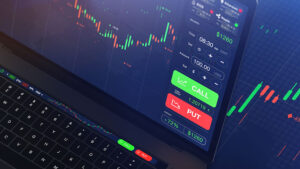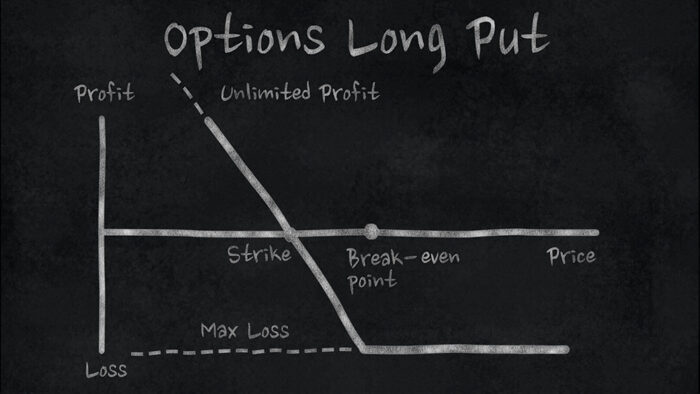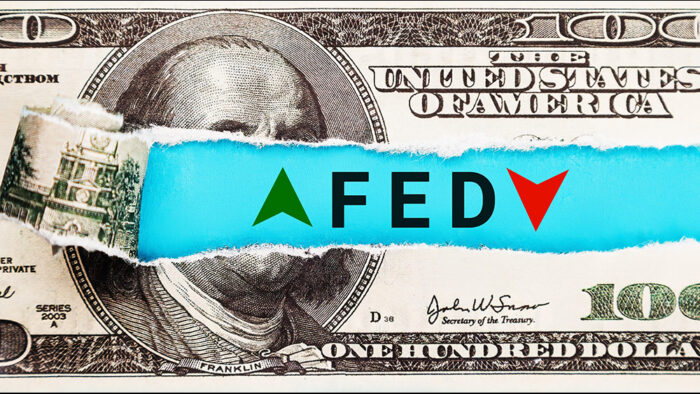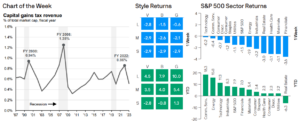By: Benjamin Colton and Ryan Nowicki
Bridging the time-horizon gap to create long-term value.
- As a long-term investor, representing quasi-permanent capital for companies held in our clients’ index portfolios, we are uniquely positioned and incentivized to encourage portfolio companies to consider long-term risks and opportunities in order to maximize long-term value for our clients.
- With many portfolio companies improving their shareholder engagement practices and approach to long-term financially material issues, our support for incumbent directors in contested elections has steadily increased over the last five years, reaching a new high in 2022.
- Some activist shareholders, companies, and policymakers are engaging in and/or proposing activities that can circumvent shareholder voice; such measures could result in capital markets characterized by a focus on short-termism, amplifying the influence of certain investors and stakeholders, often with limited investment time horizons.
- Boards and management teams that focus on managing material risks and emerging opportunities can maximize value for both companies and their diverse shareholder bases, thereby bridging the gap between short and long-term interests.
Introduction: A Critical Juncture for Shareholders
Faced with inflationary pressures, geopolitical uncertainty, and market volatility, companies’ commitment to an elevated culture of shareholder engagement has never been more critical. Coupled with these headwinds are the introduction of a universal proxy card and a shifting legislative environment. These developments have the potential to significantly alter the landscape of shareholder activism.
The universal proxy card (see below) presents a meaningful shift in how investors participate in shareholder democracy, as well as how companies and activist shareholders approach contested elections. In parallel with this development, new measures are currently being considered by policymakers, which intend to further empower individual investors. While we are supportive of the spirit and intent of these proposals to democratize the voice of shareholders, without thoughtful implementation these measures may result in unintended consequences for investors and companies alike.
At the same time, a short-term focus is being demonstrated by company actions, activist shareholder settlements, and legislative proposals, each of which has the potential to silence the long-term shareholder voice. Against this backdrop, the importance of considering long-term perspectives in these discussions has never been more important.
Our Role as a Long-term Investor amidst Diverse Shareholder Views
We appreciate that different investors have a broad spectrum of investment philosophes, risk appetites, and time horizons. We respect this diversity and value building relationships with our portfolio companies given our mutual objective of achieving long-term, risk-adjusted returns for our clients, who are the underlying shareholders in these companies. As a long-term investor, particularly in our index portfolios where we own a company for the duration of its inclusion in the index, we are a stabilizing force for our portfolio companies. We are uniquely positioned and incentivized to use our stewardship tools to encourage portfolio companies to consider long-term risks and opportunities, in an effort to create long-term value for our clients 1.
By providing cost-effective and efficient vehicles to achieve diversification, our index products have increased access to financial markets for all investors – from individual workers saving for retirement to the world’s most sophisticated institutional investors.
State Street Global Advisors’ Asset Stewardship team aims to address all financially material issues – including environmental, social, and governance (“ESG”) issues – through our proxy voting and company engagement, thereby promoting the reduction of risk in our clients’ investments. In pursuing this mission, we have long recognized that activist shareholders can bring positive change to underperforming companies2, particularly when boards or management do not respond to investor concerns. However, we are wary of activist shareholder models of engagement that favor short-term gains at the expense of long-term investor interests.
Our Approach to Engaging with Activist Shareholders and Nominee Candidates
We have a broad history of constructive engagement with management and boards of our portfolio companies, as well as with the activist shareholders who challenge them. This has occurred through dialogue and/or proxy contests. In recent years, we have increasingly witnessed activist shareholders dive deeper into emerging areas of company performance and board oversight, including financially material ESG issues3. As a result, board candidates increasingly offer multidisciplinary expertise in addition to direct industry experience4.
Activist shareholders, often with short-term time horizons, would be well served to focus on bridging the gap between short and long-term interests. By demonstrating a compelling case for how their proposed strategy and director nominees are superior to the incumbent’s approach to value creation, activist shareholders could increase their base of support among voting shareholders. A focus on this approach is particularly relevant in today’s market environment marked by volatility and uncertainty, in which activist shareholders may be incentivized to drive their agendas and advocate for change.5
Despite a renewed focus on director quality by activist shareholders, our support for incumbent directors in proxy contests has increased year-over-year since 2017, reaching a new high in 2022 as seen in Figure 1.6
This increase in support can be attributed to:
- A lack of focus and substance on long-term strategy in dissidents’ rationale, coupled with engagement models that over-emphasize short-term performance periods, which come at the expense of long-term investor interests and could result in the “greenwashing“ of ESG issues7
- The greater responsiveness of incumbent management and boards of target companies, as well as improved board independence, enhanced focus on ongoing board refreshment, and elevated quality and experience of incumbent directors
- Our commitment to standing behind portfolio companies during the global pandemic, while they focused on financial resiliency and navigated immediate challenges, including employee health, customer protection, and supply chain safety
Figure 1: Our Support in Global Proxy Contests, 2017-2022


Click here to read the full article
Footnotes
1“Why Index Investing is Good for Markets – And Investors”. State Street Global Advisors. (August 2019)
https://www.ssga.com/investment-topics/environmental-social-governance/2019/10/why-index-investing-is-good-for-markets.pdf
2Brav, Alon. Jiang, Wei and Kim, Hyunseob. ”The Real Effects of Hedge Fund Activism: Productivity, Asset Allocation, and Labor Outcomes” Oxford University Financial Review. (June 2015) http://rfs.oxfordjournals.org/content/28/10/2723.full.pdf
3“H1 2022 Review of Shareholder Activism”, Lazard Capital Markets Advisory Group. (July 2022)
H1 2022 Review of Shareholder Activism (lazard.com): https://www.lazard.com/media/452146/lazards-h1-2022-review-of-shareholder-activism.pdf
4“Shareholder Activism in 2021” Insightia. (January 2022)
5Gonzalez, Juan Pablo, Goodman, Anthony, van Biesen, Tanya, Olson, Nels. “The Return of the Activist Investor” Korn Ferry (August 2022) https://www.kornferry.com/insights/this-week-in-leadership/the-return-of-the-activist-investor
6State Street Global Advisors Voting Data as of date 8/1/2022
7“The Effect of Shareholder Activism on Corporate Strategy”, Spencer Stuart, Evercore & NYSE Governance Services. (April 2016) https://www.spencerstuart.com/research-and-insight/the-effect-of-shareholder-activism-on-corporate-strategy
8“Global Proxy Voting and Engagement Guidelines” State Street Global Advisors. (March 2022).
9“Fact Sheet: Universal Proxy Rules for Director Elections”, U.S. Securities and Exchange Commission. (July 2022)
https://www.sec.gov/files/34-93596-fact-sheet.pdf
10Hirst, Scott. “Comment Letter to SEC: Universal Proxy”. (June 7, 2021) https://www.sec.gov/comments/s7-24-16/s72416-8893542-241143.pdf
11Hirst, Scott. “Universal Proxies”. Yale Journal on Regulation. Vol 35, No.2. (September 25, 2017)
https://ssrn.com/abstract=2805136
12“The Activist Report: 13D Monitor. 10 Questions with Ben Colton”, 13D Monitor. (February 2022)
13Liekefett, Kai H.E. “Welcoming the Universal Proxy”, Sidley (July 2022) https://www.sidley.com/-/media/publications/welcoming-the-universal-proxy.pdf?la=en
14Bebchuk, Lucian A. and Brav, Alon and Jiang, Wei and Keusch, Thomas, “Dancing with Activists” (June 1, 2017). Journal of Financial Economics, Harvard Law, Columbia Business School and European Corporate Governance Institute.
https://ssrn.com/abstract=2948869
—
Originally Posted November 3, 2022 – The Role of Long-Term Shareholder Voice
Disclosure
The information provided does not constitute investment advice and it should not be relied on as such. It should not be considered a solicitation to buy or an offer to sell a security. It does not take into account any investor’s particular investment objectives, strategies, tax status or investment horizon. You should consult your tax and financial advisor.
All information has been obtained from sources believed to be reliable, but its accuracy is not guaranteed. There is no representation or warranty as to the current accuracy, reliability or completeness of, nor liability for, decisions based on such information.
The whole or any part of this work may not be reproduced, copied or transmitted or any of its contents disclosed to third parties without State Street Global Advisors’ express written consent.
State Street Global Advisors Worldwide Entities
© 2022 State Street Corporation – All rights reserved.
Tracking code: 4018250.1.1.GBL.RTL
Expiration Date: 10/31/23
Disclosure: State Street Global Advisors
Do not reproduce or reprint without the written permission of SSGA.
All information has been obtained from sources believed to be reliable, but its accuracy is not guaranteed. There is no representation or warranty as to the current accuracy, reliability or completeness of, nor liability for, decisions based on such information and it should not be relied on as such.
State Street Global Advisors and its affiliates (“SSGA”) have not taken into consideration the circumstances of any particular investor in producing this material and are not making an investment recommendation or acting in fiduciary capacity in connection with the provision of the information contained herein.
ETFs trade like stocks, are subject to investment risk, fluctuate in market value and may trade at prices above or below the ETF’s net asset value. Brokerage commissions and ETF expenses will reduce returns.
Bonds generally present less short-term risk and volatility than stocks, but contain interest rate risk (as interest rates raise, bond prices usually fall); issuer default risk; issuer credit risk; liquidity risk; and inflation risk. These effects are usually pronounced for longer-term securities. Any fixed income security sold or redeemed prior to maturity may be subject to a substantial gain or loss.
Investing involves risk including the risk of loss of principal.
The whole or any part of this work may not be reproduced, copied or transmitted or any of its contents disclosed to third parties without SSGA’s express written consent.
Investing in high yield fixed income securities, otherwise known as “junk bonds”, is considered speculative and involves greater risk of loss of principal and interest than investing in investment grade fixed income securities. These Lower-quality debt securities involve greater risk of default or price changes due to potential changes in the credit quality of the issuer.
COPYRIGHT AND OTHER RIGHTS
Other third party content is the intellectual property of the respective third party and all rights are reserved to them. All rights reserved. No organization or individual is permitted to reproduce, distribute or otherwise use the statistics and information in this report without the written agreement of the copyright owners.
Definition:
Arbitrage: the simultaneous buying and selling of securities, currency, or commodities in different markets or in derivative forms in order to take advantage of differing prices for the same asset.
Fund Objectives:
SPY: The investment seeks to provide investment results that, before expenses, correspond generally to the price and yield performance of the S&P 500® Index. The Trust seeks to achieve its investment objective by holding a portfolio of the common stocks that are included in the index (the “Portfolio”), with the weight of each stock in the Portfolio substantially corresponding to the weight of such stock in the index.
VOO: The investment seeks to track the performance of a benchmark index that measures the investment return of large-capitalization stocks. The fund employs an indexing investment approach designed to track the performance of the Standard & Poor’s 500 Index, a widely recognized benchmark of U.S. stock market performance that is dominated by the stocks of large U.S. companies. The advisor attempts to replicate the target index by investing all, or substantially all, of its assets in the stocks that make up the index, holding each stock in approximately the same proportion as its weighting in the index.
IVV: The investment seeks to track the investment results of the S&P 500 (the “underlying index”), which measures the performance of the large-capitalization sector of the U.S. equity market. The fund generally invests at least 90% of its assets in securities of the underlying index and in depositary receipts representing securities of the underlying index. It may invest the remainder of its assets in certain futures, options and swap contracts, cash and cash equivalents, as well as in securities not included in the underlying index, but which the advisor believes will help the fund track the underlying index.
The funds presented herein have different investment objectives, costs and expenses. Each fund is managed by a different investment firm, and the performance of each fund will necessarily depend on the ability of their respective managers to select portfolio investments. These differences, among others, may result in significant disparity in the funds’ portfolio assets and performance. For further information on the funds, please review their respective prospectuses.
Entity Disclosures:
The trademarks and service marks referenced herein are the property of their respective owners. Third party data providers make no warranties or representations of any kind relating to the accuracy, completeness or timeliness of the data and have no liability for damages of any kind relating to the use of such data.
SSGA Funds Management, Inc. serves as the investment advisor to the SPDR ETFs that are registered with the United States Securities and Exchange Commission under the Investment Company Act of 1940. SSGA Funds Management, Inc. is an affiliate of State Street Global Advisors Limited.
Intellectual Property Disclosures:
Standard & Poor’s®, S&P® and SPDR® are registered trademarks of Standard & Poor’s® Financial Services LLC (S&P); Dow Jones is a registered trademark of Dow Jones Trademark Holdings LLC (Dow Jones); and these trademarks have been licensed for use by S&P Dow Jones Indices LLC (SPDJI) and sublicensed for certain purposes by State Street Corporation. State Street Corporation’s financial products are not sponsored, endorsed, sold or promoted by SPDJI, Dow Jones, S&P, their respective affiliates and third party licensors and none of such parties make any representation regarding the advisability of investing in such product(s) nor do they have any liability in relation thereto, including for any errors, omissions, or interruptions of any index.
BLOOMBERG®, a trademark and service mark of Bloomberg Finance, L.P. and its affiliates, and BARCLAYS®, a trademark and service mark of Barclays Bank Plc., have each been licensed for use in connection with the listing and trading of the SPDR Bloomberg Barclays ETFs.
Distributor: State Street Global Advisors Funds Distributors, LLC, member FINRA, SIPC, an indirect wholly owned subsidiary of State Street Corporation. References to State Street may include State Street Corporation and its affiliates. Certain State Street affiliates provide services and receive fees from the SPDR ETFs.
ALPS Distributors, Inc., member FINRA, is distributor for SPDR® S&P 500®, SPDR® S&P MidCap 400® and SPDR® Dow Jones Industrial Average, all unit investment trusts. ALPS Distributors, Inc. is not affiliated with State Street Global Advisors Funds Distributors, LLC.
Before investing, consider the funds’ investment objectives, risks, charges, and expenses. For SPDR funds, you may obtain a prospectus or summary prospectus containing this and other information by calling 1‐866‐787‐2257 or visiting www.spdrs.com. Please read the prospectus carefully before investing.
Disclosure: Interactive Brokers
Information posted on IBKR Campus that is provided by third-parties does NOT constitute a recommendation that you should contract for the services of that third party. Third-party participants who contribute to IBKR Campus are independent of Interactive Brokers and Interactive Brokers does not make any representations or warranties concerning the services offered, their past or future performance, or the accuracy of the information provided by the third party. Past performance is no guarantee of future results.
This material is from State Street Global Advisors and is being posted with its permission. The views expressed in this material are solely those of the author and/or State Street Global Advisors and Interactive Brokers is not endorsing or recommending any investment or trading discussed in the material. This material is not and should not be construed as an offer to buy or sell any security. It should not be construed as research or investment advice or a recommendation to buy, sell or hold any security or commodity. This material does not and is not intended to take into account the particular financial conditions, investment objectives or requirements of individual customers. Before acting on this material, you should consider whether it is suitable for your particular circumstances and, as necessary, seek professional advice.























